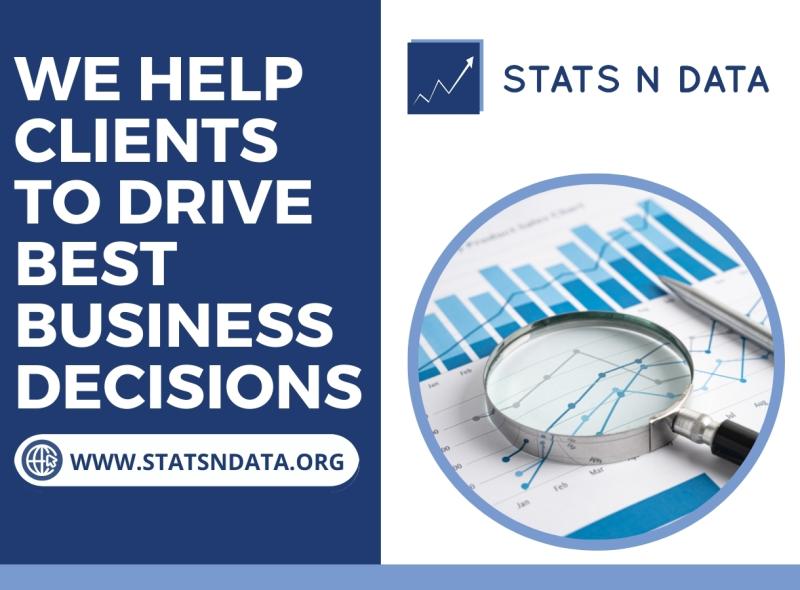Press release
Capsule Coffee Market CAGR 6.80% Trends with Nestle Nespresso (Switzerland), Illy (Italy), Vittoria Food and Beverage (Australia), Lavazza (Italy), Caffitaly System (Italy), Belmoca (Belgium), Mera (Italy), BORBOBE
The capsule coffee market has experienced significant growth in recent years, driven by evolving consumer preferences and the increasing demand for convenience in coffee preparation. As lifestyles become busier, many coffee drinkers are gravitating towards single-serve solutions that offer speed, consistency, and minimal cleanup. This trend is not only reshaping how coffee is consumed at home but also influencing practices in workplaces and cafes. The convenience of capsule coffee systems, which allow users to brew a fresh cup of coffee in seconds, has made them particularly appealing, especially among millennials and younger consumers who value efficiency and quality.Looking ahead, the capsule coffee market is projected to grow at a compound annual growth rate (CAGR) of 6.80% from 2025 to 2032. This robust growth is anticipated as innovations in coffee technology continue to emerge, enhancing the overall user experience. Factors such as the introduction of new flavors, sustainable packaging solutions, and advanced brewing techniques are expected to contribute to market expansion. Additionally, the rising trend of premiumization in the coffee sector is likely to attract consumers seeking high-quality, gourmet options in capsule form. As a result, the market is expected to surpass a valuation of approximately USD 40 billion by 2032, reflecting the increasing integration of capsule systems into daily routines and the ongoing evolution of coffee consumption.
In summary, the capsule coffee market is poised for substantial growth as it adapts to changing consumer needs and preferences. With convenience and quality at the forefront, coupled with innovations in product offerings, this market segment is well-positioned to thrive in the coming years. The anticipated growth will not only benefit consumers seeking easy and enjoyable coffee experiences but also present opportunities for businesses to innovate and expand within this dynamic market.
You can access a sample PDF report here: https://www.statsndata.org/download-sample.php?id=31181
The capsule coffee market has witnessed explosive growth in recent years, driven by the increasing demand for convenient and high-quality coffee solutions. As consumers prioritize efficiency in their daily routines, the popularity of single-serve coffee systems, including coffee pods and espresso capsules, has surged. This market is not only reshaping how coffee enthusiasts enjoy their brew but also influencing the entire coffee brewing landscape.
Recent technological advancements have played a pivotal role in this growth. Innovations in coffee machines that utilize coffee capsules have led to improved brewing techniques, allowing for a more flavorful and aromatic experience. Moreover, strategic partnerships between leading coffee brands and technology firms have enabled the introduction of smart coffee machines that integrate with mobile applications, offering users a personalized coffee experience. Executives and investors in the coffee industry should recognize these shifts as significant catalysts for growth and innovation in the capsule coffee market.
As consumers become increasingly discerning, the demand for sustainable coffee options is also on the rise. Eco-friendly coffee capsules made from recyclable materials are gaining traction, appealing to environmentally conscious consumers who seek both convenience and sustainability. This shift towards sustainable coffee practices is not just a trend; it is becoming a necessity for brands looking to stay competitive in a rapidly evolving market.
Key Growth Drivers and Trends
Several key drivers are propelling the growth of the capsule coffee market. The rising awareness of sustainability has led consumers to seek environmentally friendly coffee capsules that reduce waste and carbon footprint. Brands are responding to this demand by introducing innovative solutions, such as biodegradable coffee pods and recyclable packaging, ensuring that consumers can enjoy their favorite coffee flavors while contributing to a more sustainable future.
Additionally, the digitization of the coffee industry is transforming consumer expectations. With the integration of artificial intelligence, coffee brands are now able to offer personalized recommendations based on individual taste profiles. This level of customization enhances the coffee brewing experience, making it more engaging for consumers. Emerging technologies, such as the Internet of Things (IoT), are also allowing coffee machines to connect to smart home systems, further enhancing convenience for users.
The ongoing trend of gourmet coffee flavors is another driving factor in the market. Consumers are increasingly experimenting with various coffee flavors and blends, seeking unique taste experiences. This trend is encouraging brands to expand their offerings and explore new flavor profiles in their coffee capsules, catering to the adventurous palate of modern coffee drinkers.
Furthermore, the growing popularity of capsule coffee for busy lifestyles cannot be overlooked. As more individuals seek quick and efficient coffee solutions, the demand for high-quality single-serve coffee continues to rise. The convenience of coffee pods allows consumers to enjoy café-quality coffee at home or on the go.
Market Segmentation
The capsule coffee market can be segmented into two primary categories: by type and by application.
Segment by Type:
- Aluminum Capsules
- Plastic Capsules
- Paper Capsules
Segment by Application:
- Home Use
- Commercial Use
Each segment caters to different consumer needs and preferences. Aluminum capsules are known for their ability to preserve the freshness and flavor of coffee, making them a popular choice among espresso lovers. Plastic capsules, on the other hand, are lightweight and often more affordable, appealing to budget-conscious consumers. Paper capsules are gaining popularity due to their eco-friendly nature, aligning with the growing demand for sustainable coffee options.
In terms of application, the home use segment has seen significant growth as more consumers invest in coffee machines that utilize coffee capsules for convenience. The commercial use segment is also expanding as cafés and restaurants adopt capsule coffee systems to enhance their offerings and provide customers with quick, high-quality coffee options.
Competitive Landscape
The competitive landscape of the capsule coffee market is marked by several key players that are leading the charge in innovation and sustainability.
- Nestle Nespresso (Switzerland): A pioneer in the capsule coffee market, Nespresso continues to innovate with new coffee flavors and sustainable practices, including the introduction of recyclable coffee capsules.
- Illy (Italy): Renowned for its premium coffee, Illy has expanded its espresso capsules offerings, focusing on high-quality beans and sustainable sourcing.
- Vittoria Food and Beverage (Australia): This brand has carved a niche in the market with its commitment to sustainability, offering eco-friendly coffee pods that appeal to environmentally conscious consumers.
- Lavazza (Italy): With a rich history in coffee, Lavazza is continuously enhancing its capsule range, introducing new flavor profiles to cater to diverse consumer tastes.
- Caffitaly System (Italy): Caffitaly focuses on innovation in coffee machine technology, providing a comprehensive solution for both home and commercial users.
- Belmoca (Belgium): Known for its affordable capsule options, Belmoca is gaining popularity among consumers looking for high-quality coffee without breaking the bank.
- Mera (Italy): Offering a variety of coffee capsule flavors, Mera is working to expand its presence in the global market by focusing on quality and sustainability.
- BORBOBE: This emerging brand has introduced a unique range of coffee capsules, emphasizing gourmet flavors and premium quality.
- Gourmesso: Known for its diverse selection of coffee capsules compatible with various coffee machines, Gourmesso is appealing to a wide audience.
- Bosch Tassimo (Germany): Bosch has revolutionized the coffee brewing experience with its Tassimo system, which utilizes barcode technology to brew the perfect cup every time.
These players are continuously launching new products, expanding their market presence, and forming strategic partnerships to enhance their offerings and stay ahead of the competition.
Opportunities and Challenges
As the capsule coffee market continues to evolve, it presents a range of opportunities for brands willing to innovate and adapt to changing consumer preferences. Untapped niches, such as flavored iced coffee capsules and gourmet blends, are emerging as potential revenue streams. Additionally, evolving buyer personas, including younger consumers who prioritize sustainability, create avenues for brands to differentiate themselves through eco-friendly practices and unique flavor offerings.
However, the market is not without its challenges. Regulatory hurdles related to packaging and sustainability may pose obstacles for brands looking to expand their product lines. Additionally, supply chain gaps can impact the availability of raw materials for coffee capsule production. To address these challenges, companies must invest in sustainable sourcing practices and explore alternative materials that align with environmental regulations.
Technological Advancements
The capsule coffee market is being transformed by cutting-edge technologies that enhance the overall coffee experience. Artificial intelligence is playing a significant role in personalizing coffee recommendations based on consumer preferences. Digital twins and IoT integration in coffee machines are providing users with real-time monitoring and control over their brewing processes.
Furthermore, virtual reality is emerging as a tool for brands to engage consumers in immersive coffee experiences, allowing them to explore different coffee flavors and brewing techniques. Blockchain technology is also being utilized to ensure transparency in the coffee supply chain, promoting ethical sourcing and sustainability.
These technological advancements are not only improving the efficiency of coffee brewing but also enhancing the consumer experience, making it more engaging and personalized.
Research Methodology and Insights
At STATS N DATA, our research methodology employs both top-down and bottom-up approaches to ensure comprehensive insights into the capsule coffee market. We utilize primary data collection through surveys and interviews with industry experts, along with secondary data analysis from reputable sources. Our multi-layer triangulation process further validates our findings, providing robust insights that empower executives and decision-makers in the coffee industry.
Our commitment to delivering actionable insights positions STATS N DATA as a trusted authority in the capsule coffee market, enabling stakeholders to make informed decisions in an ever-evolving landscape.
The capsule coffee market is poised for significant growth, driven by evolving consumer preferences and technological advancements. With a focus on sustainability, customization, and convenience, brands that embrace these trends will thrive in this competitive landscape. As the market continues to expand, STATS N DATA remains dedicated to providing in-depth analysis and insights that empower industry leaders to navigate the future of coffee with confidence.
Get 30% Discount On Full Report: https://www.statsndata.org/ask-for-discount.php?id=31181
In the bustling landscape of the capsule coffee market, a leading player faced a formidable challenge that threatened its position. As consumer preferences shifted towards sustainability and premium quality, this key player found itself grappling with declining market share and increasing competition from nimble upstarts. The once-thriving brand, known for its innovative coffee solutions, began to see a downturn in customer loyalty. Customer feedback highlighted growing concerns over environmental impact, as traditional capsule materials were increasingly viewed as wasteful. The urgency of the situation was palpable, as the management recognized that without a transformative strategy, they risked losing their footing in an industry that was rapidly evolving. The pressure mounted, and it became clear that a comprehensive, data-driven approach was necessary to redefine their market strategy and reconnect with consumers.
To tackle this pressing issue, the company turned to a specialized analytics firm that utilized advanced analysis techniques to uncover actionable insights. The analytics firm conducted an in-depth exploration of market trends, customer preferences, and competitor strategies, employing sophisticated algorithms to sift through vast datasets. Their analysis revealed a clear consumer shift towards not only high-quality coffee but also environmentally friendly products. This pivotal insight led to the formulation of a groundbreaking strategy that focused on sustainable sourcing of coffee beans, biodegradable capsule materials, and innovative recycling programs. The firm also highlighted the importance of storytelling in marketing, emphasizing transparency and ethical practices. By aligning their product offerings with the core values of the modern consumer, the strategy aimed to revitalize the brand's image while addressing environmental concerns head-on.
The implementation of this data-driven strategy yielded remarkable results, transforming the brand's performance in the marketplace. Within just a year, the company experienced a significant uptick in market share, capturing new customers who were previously loyal to more sustainable competitors. Sales figures soared, with revenue growth surpassing expectations as consumers flocked to the newly launched product lines that prioritized both quality and sustainability. Operational efficiency improved as well, driven by streamlined supply chains and enhanced collaboration with ethical coffee growers. The company reported a 25 percent increase in customer retention rates, demonstrating that the strategic pivot resonated deeply with their audience. The combination of innovative products and a robust commitment to sustainability not only re-established the brand's presence in the market but also set a new standard for what consumers expect from capsule coffee products. The once-struggling player had successfully navigated the turbulent waters of change, emerging as a leader in a revitalized industry.
For customization requests, please visit: https://www.statsndata.org/request-customization.php?id=31181
Q: What is capsule coffee?
A: Capsule coffee refers to coffee that is pre-packaged in a small, sealed container or pod. These capsules typically contain ground coffee, which is protected from air and moisture, ensuring freshness. Capsule coffee systems are designed for convenience, allowing users to make a single serving of coffee quickly without the need for traditional brewing methods. These capsules can be made from various materials, including plastic, aluminum, or biodegradable materials, depending on the brand and sustainability practices.
Q: How do coffee capsules work?
A: Coffee capsules work by using a specialized brewing machine that pierces the capsule when it is inserted. The machine forces hot water through the capsule under pressure, extracting the flavors and aromas from the coffee grounds inside. The design of the capsule helps to control the brewing time and temperature, which contributes to the quality of the coffee produced. After brewing, the used capsule is typically discarded or recycled, depending on the manufacturer's recommendations.
Q: Are capsule coffees worth it?
A: Whether capsule coffees are worth it depends on individual preferences and priorities. They offer convenience, speed, and a wide variety of flavors, making them appealing for busy individuals. They also minimize cleanup, as there are no coffee grounds to dispose of. However, capsule coffees can be more expensive per cup compared to traditional ground coffee. Additionally, some coffee aficionados argue that they may not achieve the same depth of flavor as freshly brewed coffee. Therefore, it ultimately comes down to personal taste and lifestyle.
Q: What are the environmental impacts of coffee pods?
A: The environmental impacts of coffee pods can be significant. Many coffee capsules are made from plastic or aluminum, which can contribute to landfill waste if not disposed of properly. While some companies have introduced recyclable or biodegradable options, the recycling process for these pods can be complicated. The production of coffee capsules also involves energy consumption and resource use. However, some brands are working to improve sustainability by creating compostable capsules or implementing recycling programs. Consumers should consider the environmental implications when choosing coffee capsules.
Q: How to recycle coffee capsules properly?
A: To recycle coffee capsules properly, first check the manufacturer's guidelines, as different brands have different recycling protocols. Some capsules can be recycled in regular recycling bins, while others require special handling. If the capsules are made of aluminum, they may be recyclable, but they should be rinsed out first to remove coffee residue. For plastic capsules, some brands offer mail-back programs where consumers can send used capsules for recycling. It is essential to separate the coffee grounds from the capsule, as many recycling facilities do not accept mixed materials.
Q: What are the best coffee capsules?
A: The best coffee capsules largely depend on personal taste preferences, but several brands are highly regarded for their quality and flavor. Popular options include Nespresso, Keurig, and Lavazza. Nespresso is known for its high-quality espresso capsules, while Keurig offers a wide variety of coffee flavors and brands. Other notable brands include Illy, Peet's Coffee, and Starbucks, which also provide a selection of capsules. When choosing the best coffee capsules, consider factors such as flavor profiles, roast levels, and compatibility with your coffee machine.
Q: Can you use coffee capsules in any machine?
A: No, coffee capsules are generally designed for specific machines. For example, Nespresso capsules are compatible only with Nespresso machines, while Keurig pods are designed for Keurig brewers. Some brands offer compatible capsules for multiple machines, but it is essential to verify compatibility before purchasing. Using the wrong capsule can lead to improper brewing and potential damage to the machine.
Q: How long do coffee capsules last?
A: Coffee capsules typically have a shelf life of around 6 to 12 months, depending on the brand and packaging. This shelf life is indicated by a best-by date printed on the box. While capsules may still be usable after this date, the flavor and freshness may diminish over time. To ensure the best taste, it is recommended to store them in a cool, dry place and use them before the expiration date.
Q: What are the advantages of capsule coffee?
A: Capsule coffee offers several advantages. Firstly, it is highly convenient, allowing users to brew a single cup quickly without the need for measuring coffee grounds or cleaning up a coffee maker. Secondly, capsules often come in a wide variety of flavors and blends, catering to diverse taste preferences. Thirdly, they provide consistent quality, as each capsule contains a specific amount of coffee, ensuring uniformity in taste and strength. Finally, many machines are designed to be easy to use, making them accessible for all coffee drinkers.
Q: How to choose the right coffee pod?
A: Choosing the right coffee pod involves considering several factors. First, assess your taste preferences, whether you prefer light, medium, or dark roasts, as well as flavored options. Next, check the compatibility of the pods with your brewing machine to avoid purchasing incompatible products. Additionally, read reviews and ratings from other consumers to gauge the quality and flavor of the coffee. Finally, consider the brand's sustainability practices and whether they have recyclable or biodegradable options, which can be important for environmentally conscious consumers.
Q: Are there organic coffee capsules?
A: Yes, there are organic coffee capsules available on the market. Many brands offer organic options that are made from coffee beans grown without synthetic pesticides or fertilizers. These organic capsules often come in various roast levels and flavor profiles, catering to a wide range of coffee drinkers. Some popular brands that offer organic coffee capsules include Nespresso, Peet's Coffee, and several specialty roasters. When looking for organic coffee capsules, check for certification labels to ensure the product meets organic standards.
Q: What flavors are available in coffee pods?
A: Coffee pods come in a wide range of flavors to cater to different tastes. Common options include classic flavors like espresso, Americano, and cappuccino. Many brands also offer flavored coffee pods, such as vanilla, caramel, hazelnut, and mocha. Additionally, there are seasonal flavors that may be available at certain times of the year, such as pumpkin spice or peppermint. Some brands even provide blends that combine different coffee varieties or unique flavor profiles, allowing for a diverse coffee experience.
Q: How does capsule coffee compare to traditional coffee?
A: Capsule coffee differs from traditional coffee in several ways. One significant difference is convenience, as capsule coffee machines offer a quick and easy brewing process, while traditional brewing methods often involve more steps and equipment. In terms of flavor, some coffee enthusiasts argue that traditional coffee brewed from fresh grounds can provide a richer and more complex taste. Capsule coffee can also be more expensive per cup compared to brewing from bulk coffee. However, capsule coffee offers consistent flavor and minimal cleanup, which can be appealing to busy individuals.
Q: Can you make cappuccino with coffee capsules?
A: Yes, you can make cappuccino with coffee capsules, but it depends on the machine you are using. Many capsule coffee machines, such as Nespresso, have specific capsules designed for making milk-based drinks like cappuccinos. These machines often include a milk frother or steam wand, allowing you to froth milk and combine it with espresso to create a cappuccino. You can also purchase cappuccino pods that contain both coffee and milk components to simplify the process. Always check the compatibility of the capsules with your machine when making cappuccinos.
Q: What is the cost of capsule coffee?
A: The cost of capsule coffee varies widely depending on the brand, type of coffee, and packaging. On average, coffee capsules can range from $0.50 to $1.00 per pod. Premium brands or specialty coffee capsules may cost more, while bulk purchases can often provide savings. Compared to traditional ground coffee, which can cost around $0.20 to $0.50 per cup, capsule coffee tends to be more expensive on a per-serving basis. When budgeting for capsule coffee, consider both the cost of the capsules and the initial investment in a compatible coffee machine.
Q: How to store coffee capsules?
A: To store coffee capsules properly, keep them in a cool, dry place away from direct sunlight. Avoid exposing them to moisture or heat, as this can compromise the freshness of the coffee. Many brands package their capsules in airtight containers to help preserve flavor and aroma. If the capsules come in a box, it is best to keep them sealed until you are ready to use them. Some consumers choose to organize their capsules in drawer organizers or storage bins to keep them accessible while maintaining their integrity.
Q: Are there reusable coffee capsules?
A: Yes, there are reusable coffee capsules available that allow users to fill them with their choice of ground coffee. These capsules are often made of stainless steel or durable plastic and can be washed and reused multiple times. Using reusable capsules can be a more sustainable option, reducing waste associated with single-use coffee pods. They also provide the flexibility to use different types of coffee, including fresh ground coffee, which can enhance the brewing experience. However, users must ensure that the reusable capsule is compatible with their coffee machine.
Q: How to brew the perfect cup with coffee pods?
A: To brew the perfect cup with coffee pods, start by selecting a high-quality pod that suits your taste. Ensure your coffee machine is clean and properly maintained to avoid any residual flavors affecting your coffee. Follow the manufacturer's instructions for water temperature and brewing time, as these can vary by machine. Use filtered water for a cleaner taste, and avoid overfilling the water reservoir. Finally, experiment with different pod flavors and strengths to find the ideal combination that meets your preferences, adjusting brew settings if your machine allows it.
Q: What is the size of standard coffee capsules?
A: The size of standard coffee capsules can vary slightly depending on the brand, but most coffee capsules are designed to hold about 5 to 7 grams of coffee. The most common sizes are designed for single servings, typically around 37 to 40 mm in diameter. Nespresso capsules, for example, are standardized for their machines, and Keurig pods are also designed to fit their brewers. It's important to note that some brands may offer larger or smaller capsules for different brewing purposes, such as espresso or larger coffee servings.
Q: Can you recycle coffee pods?
A: Yes, you can recycle coffee pods, but the process varies depending on the materials used and the manufacturer's guidelines. Many aluminum capsules can be recycled with regular aluminum recycling, but they should be cleaned to remove coffee residue. Plastic coffee pods may require specific recycling programs, and some brands offer mail-back options for used pods. Additionally, some coffee capsules are designed to be compostable or biodegradable. It's important to verify the recycling options available for the specific brand of coffee pods you are using, as this can help reduce environmental impact.
Related Reports:
Litigation Finance & Arbitration Funding Market
https://www.statsndata.org/report/litigation-finance--arbitration-funding-market-163294
Portable Mood Monitoring Devices Market
https://www.statsndata.org/report/portable-mood-monitoring-devices-market-156498
Battery Detection Software Market
https://www.statsndata.org/report/battery-detection-software-market-54087
SRM Software Market
https://www.statsndata.org/report/srm-software-market-53132
Elastoforming Press Market
https://www.statsndata.org/report/elastoforming-press-market-206083
John Jones
Sales & Marketing Head | Stats N Data
Email: sales@statsndata.org
Website: www.statsndata.org
STATS N DATA is a trusted provider of industry intelligence and market research, delivering actionable insights to businesses across diverse sectors. We specialize in helping organizations navigate complex markets with advanced analytics, detailed market segmentation, and strategic guidance. Our expertise spans industries including technology, healthcare, telecommunications, energy, food & beverages, and more.
Committed to accuracy and innovation, we provide tailored reports that empower clients to make informed decisions, identify emerging opportunities, and achieve sustainable growth. Our team of skilled analysts leverages cutting-edge methodologies to ensure every report addresses the unique challenges of our clients.
At STATS N DATA, we transform data into knowledge and insights into success. Partner with us to gain a competitive edge in today's fast-paced business environment. For more information, visit https://www.statsndata.org or contact us today at sales@statsndata.org
This release was published on openPR.
Permanent link to this press release:
Copy
Please set a link in the press area of your homepage to this press release on openPR. openPR disclaims liability for any content contained in this release.
You can edit or delete your press release Capsule Coffee Market CAGR 6.80% Trends with Nestle Nespresso (Switzerland), Illy (Italy), Vittoria Food and Beverage (Australia), Lavazza (Italy), Caffitaly System (Italy), Belmoca (Belgium), Mera (Italy), BORBOBE here
News-ID: 4146813 • Views: …
More Releases from STATS N DATA

Commercial Paving Slabs Market Expands at 4.02% CAGR with Hanover Architectural …
The commercial paving slabs market is witnessing a steady trajectory of growth, driven by increasing urbanization and infrastructure development across the globe. As cities expand and the demand for durable, aesthetically pleasing outdoor surfaces rises, paving slabs have emerged as a popular choice for various applications, including walkways, parking lots, and public spaces. These slabs are favored for their versatility, ease of installation, and low maintenance requirements, making them an…

Multi Phase Production Pump Market Registers 7.30% CAGR Growth Backed by Petrofa …
The Multi-Phase Production Pump market is experiencing a significant transformation, driven by the increasing demand for efficient and effective extraction of oil and gas from complex reservoirs. These pumps are designed to handle multiple phases of production, such as gas, oil, and water, simultaneously, making them essential in optimizing production efficiency. As the global energy landscape evolves, particularly with the rising focus on sustainable energy practices and the need for…

Construction Software BIM Market Registers 9.10% CAGR Growth Backed by XYZrealit …
The construction software market, particularly in the realm of Building Information Modeling (BIM), is experiencing significant growth as the industry increasingly recognizes the value of advanced digital tools. BIM technology facilitates the comprehensive digital representation of physical and functional characteristics of a facility. This innovative approach enhances collaboration among stakeholders, improves project efficiency, and minimizes errors, ultimately leading to cost savings and streamlined project delivery. As construction projects become more…

Direct to Consumer Laboratory Testing Market Expands at 8.90% CAGR with 23andMe, …
The Direct to Consumer (DTC) Laboratory Testing market has emerged as a significant segment within the broader healthcare landscape, driven by increasing consumer demand for accessible and personalized health information. This market enables individuals to order medical tests without the need for a healthcare provider's prescription, offering convenience and autonomy in managing personal health. Factors such as a growing emphasis on preventive healthcare, heightened awareness of personal health metrics, and…
More Releases for Capsule
Advancements in Hard HPMC Capsule Market: The Future of Capsule Technology | Cap …
Allied Market Research Analysts have recently conducted a new research study titled "Hard HPMC Capsule Market: Global Outlook and Forecast 2023-2030." The study provides detailed information and insights on key players in the market, including Capsugel, Qualicaps, CapsCanada, ACG Worldwide, Sunil Healthcare, Bright Pharma Caps, Suheung, BioCaps Enterprise, HealthCaps India, Baotou Capstech, Wuhan Carma Technology, Shanghai Honest Chemical, Strohcaps, Shaoxing Kangke Capsule, Zhejiang Yuexi Capsule, and GS Capsule. This comprehensive…
Vegetable (HPMC) Capsule Sales Market - 37% of Growth to Originate from APAC -Lo …
Vegetable (HPMC) Capsule Sales Market Scope & Overview
Vegetable (HPMC) Capsule Sales Market Research Report provides you with an in-depth analysis of the industry, covering significant facts and figures. The report is designed to help you understand the market, including market segmentation, market potential, significant trends, and market challenges. It also covers the target industry that has been carefully examined in the most recent research.
The Vegetable (HPMC) Capsule Sales report provides…
Hollow Capsule Market Research Report (2022-2028): Key Trends and Opportunities …
Complete study of the global Hollow Capsule market is carried out by the analysts in this report, taking into consideration key factors like drivers, challenges, recent trends, opportunities, advancements, and competitive landscape. This report offers a clear understanding of the present as well as future scenario of the global Hollow Capsule industry. Research techniques like PESTLE and Porter's Five Forces analysis have been deployed by the researchers. They have also…
Vegetable (HPMC) Capsule Market to See Major Growth by 2026 | Capsugel, Suheung …
Latest Study on Industrial Growth of Global Vegetable (HPMC) Capsule Market 2021-2027. A detailed study accumulated to offer Latest insights about acute features of the Vegetable (HPMC) Capsule market. The report contains different market predictions related to revenue size, production, CAGR, Consumption, gross margin, price, and other substantial factors. While emphasizing the key driving and restraining forces for this market, the report also offers a complete study of the future…
Starch Capsule Market is Booming Worldwide By Top Emerging Key Players: Capsugel …
Starch Capsule
LOS ANGELES, United States: QY Research has recently published a research report titled, “Global Starch Capsule Market Research Report 2020". This report has been prepared by experienced and knowledgeable market analysts and researchers. It is a phenomenal compilation of important studies that explore the competitive landscape, segmentation, geographical expansion, and revenue, production, and consumption growth of the global Starch Capsule market. Players can use the accurate market facts…
Exclusive Report On Starch Capsule Market 2019-2025| Mitsubishi(Qualicaps), Suhe …
UpMarketResearch offers a latest published report on “Global Starch Capsule Market Industry Analysis and Forecast 2019-2025” delivering key insights and providing a competitive advantage to clients through a detailed report. The report contains 125 pages which highly exhibits on current market analysis scenario, upcoming as well as future opportunities, revenue growth, pricing and profitability. The report contains basic, secondary and advanced information pertaining to the Starch Capsule global status and…
